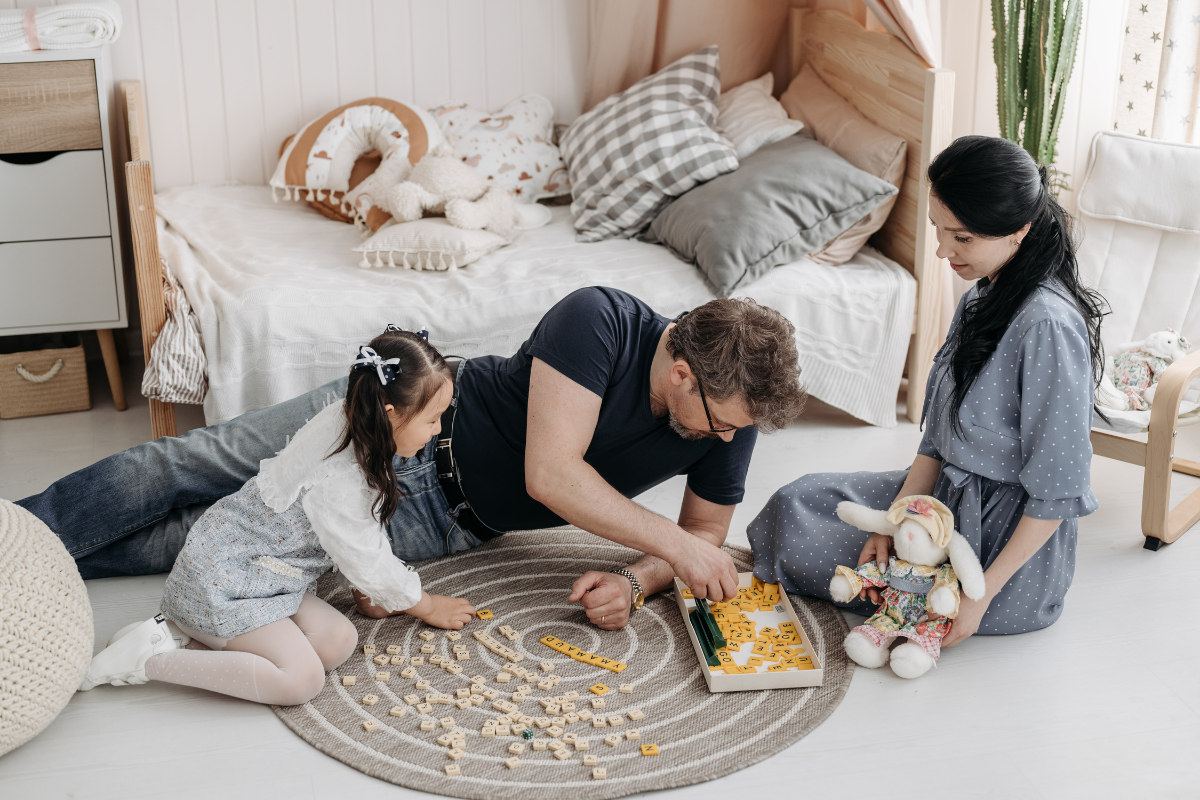For most parents, the moment they find out they’re starting a family, a switch is flipped and those friends you just had a late games night with are now in bed before 8 pm, and up before dawn to prepare themselves and their home, for a new addition. Before they know it, they’re walking through their front door with a new family member, with all the best intentions in the world. One problem, though – unfortunately, children don’t come with an instruction manual. This can make it tough when unforeseen situations arise, and the parent is expected to know what to do. Just imagine how much harder this would be when a disability is also involved.
We know just how tough the day-to-day can be, managing family with disabilities, that’s why we’ve compiled a general ‘instruction manual’, to give you a boost of confidence within the unknown.

Step One: Educate Yourself
To understand the struggles your child experiences, and how to help, you need to start by educating yourself on the specific disability. Being a child is tough, but being a child with no way to communicate with others is a massive step up from this. As a parent, guardian, or authoritative figure in a child’s life, it is your responsibility to create a path of success – through forming communication methods that work for everyone, understanding available treatments, therapies and educational strategies, to advocating for your child.

Step Two: Build a Support Network
You know what they say, ‘it takes a village’. Don’t feel like you’re in it alone; you’ll only be selling yourself short. Connect with other parents of children with disabilities, join support groups, and seek out community resources. Sharing experiences and advice with others who understand your situation is so beneficial for you and your child – having others validate what you’re dealing with can make such a big difference. If you can’t find the time or suitable group to meet with in person, this day and age allows for invaluable connections through social media – lean into it!
Step Three: Focus on Your Child’s Strengths
Sometimes, feeling alone and living within the confines of a unique disability can put a shadow over the positives in your life. Disabilities or not, everyone has unique strengths and abilities. Focus on and lean into what your child can do rather than what they cannot – this will strengthen your relationship and your positive mindset, and will have significant effects on your child, seeing the emphasis in their success.

Step Four: Create a Routine
There are many studies based on how children were raised and how it impacted them – and one of the biggest recurring outcomes was the clear need for boundaries and routine. Not only do these things teach your child acceptable behaviours, actions and life skills, but they demonstrate that you care enough about them to implement safety measures and secure routines, to form a stable lifestyle. Establishing a habitual routine allows for quality time in important areas of life, as well as scheduled downtime, ensuring you get a break, and so does your child. This reduces stress and anxiety, which will create a happier, healthier home life overall.
Step Five: Encourage Independence
No matter the disability, every person gets to a stage where they want more independence, or authority over their own life. Encouraging your child from a young age to become independent is important for their growth and development, and ensures a future where you can spend healthy amounts of time without one another and be able to function. Our MAC program is fantastic for this: it fosters independence within young adults and allows them to have advocacy over themselves, in a safe, nurturing environment.

A few more key points to remember are: advocate for your child – this ensures that they get a fair run. Take care of yourself – you can’t run yourself dry and hope to continue adding value to others’ lives. Be flexible and adaptable, and instil these traits in your child. It’s crucial that you lead by example, and demonstrate resilience in tough times.
Parenting a child with disabilities is undoubtedly a journey filled with unknowns, but with the support, education and love developed through your close relationships, it’s all worth it. Remember, you are not alone, and there is a community of families and professionals ready to support you every step of the way.
At Glenhaven, we are committed to providing comprehensive support and resources for families of children with disabilities. If you need assistance or have any questions, please feel free to contact us! Together, we can navigate the unknown and create a brighter future for your child.





